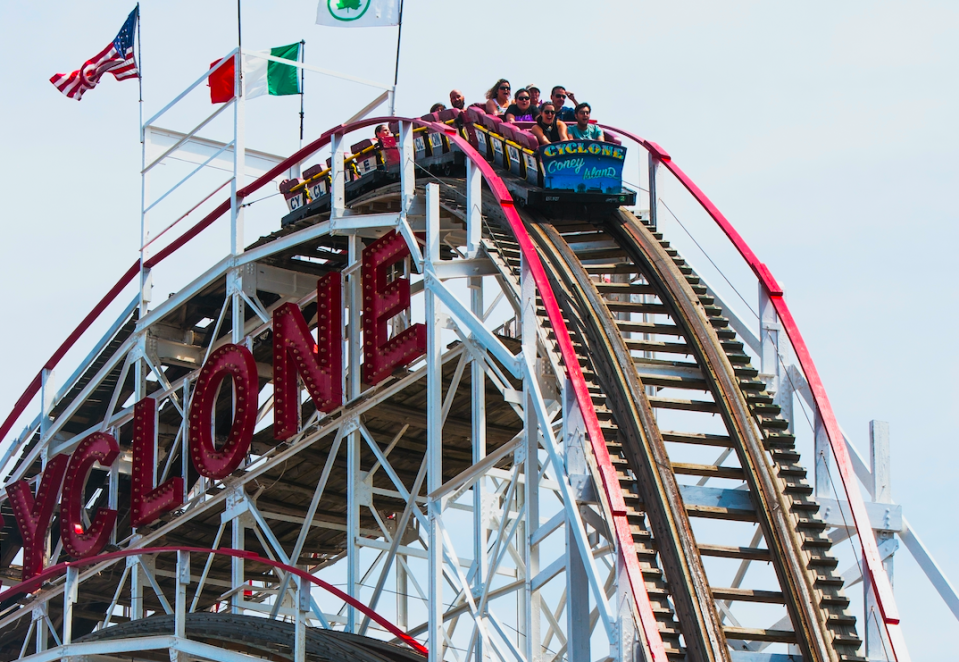How coronavirus fears could send stocks tumbling another 20%
The U.S. economy looked like it was in great shape as it entered 2020, giving investors plenty of reason to send stock prices higher.
However, that narrative quickly unraveled as the spread of COVID-19 has caused economic activity across numerous sectors around the world to collapse. And down came the stock market with it, which saw the S&P 500 (^GSPC) fall 15.8%, from its Feb. 19 high of 3,393.52 to its Feb. 28 low of 2,855.84.
Jim Bianco of Bianco Research thinks the S&P 500 could fall to 2,500 before we see the bottom as the delay in the telling economic data fuels uncertainty. That would imply a 20% decline from Wednesday’s closing level of 3,130.
“If you believe the market... there is an expectation of a severe economic disruption coming in the form of school closures, no large gatherings, widespread business closures, and everything else,” Bianco said on The Final Round on Wednesday.
While important data points like the monthly U.S. payrolls report are due this week, most of the numbers reflect a period before COVID-19 fears intensified.
“This is unusual, because what we're not talking about is economic data,” he added. “You know, tomorrow's the payroll report. Nobody cares about the payroll report. ...We're looking forward and saying, what do we think is going to be the state of affairs in two or three weeks?”
‘That means the market's going to go down 20% or 30%’
As stock prices fell, so did valuations. Specifically, the forward price/earnings (P/E) ratio has dropped to about 16.7, which is about in line with its five-year average, according to data compiled by FactSet. In other words, investors and traders appear to be less willing to pay a premium for the expected future profits of publicly traded companies.
Bianco said it could still get worse from here, and we shouldn’t read too much into the intermittent rebounds in the market.
“In mid-February, we were trading at a forward P/E ratio of 20,” he said. “To get to that point, we needed to assume phase one of the trade deal was done. We were going to have globalization. We were going to have low inflation. We were going to have low interest rates driven by low inflation.”

“Then this thing comes down, and I ultimately think that there's a high probability that we're going to have a recession either in the first or second quarter because of economic disruptions coming,” he said. “We could possibly have a backlash coming out of this of de-globalization, which would mean bringing manufacturing back to the U.S., which would raise its cost, which would be more inflationary.”
With economic conditions looking uncertain at best and unfavorable at worst, investors are likely to want less to do with the stock market.
“What I'm leading up to is the old 20 P/E is now going to be a 12 to 15 P/E,” Bianco said. “That means the market's going to go down 20% or 30%. Alright, it went down half that – around 10% or 15% so far. So we're about halfway there right now.”
And so, while there may continue to be a long-term bull case for stocks, investors and traders should brace for persistent swings in the market as we all await more clarity in the economic data.
Despite all of his words of warning, Bianco doesn’t project outright calamity in the economy and the financial markets. Specifically, he told Yahoo Finance not to expect “down 80%” in the stock market or a “Great Depression, or anything like that.”
“But we're going to go back to around 2,500 on the S&P, and that might be the new range,” he said.
[See also: Coronovirus and travel: What you need to know]
—
Sam Ro is managing editor at Yahoo Finance. Follow him on Twitter: @SamRo
Read more:
Why the stock market could continue to swing wildly for months
Why a big market rally right now would be no reason to get excited
The incredibly bullish force investors can't afford to ignore
Warren Buffett warns coronavirus will affect business, but he 'certainly won’t be selling' stocks
Forecasting one-year stock market returns is basically impossible
Follow Yahoo Finance on Twitter, Facebook, Instagram, Flipboard, LinkedIn, and reddit.
Find live stock market quotes and the latest business and finance news
For tutorials and information on investing and trading stocks, check out Cashay
